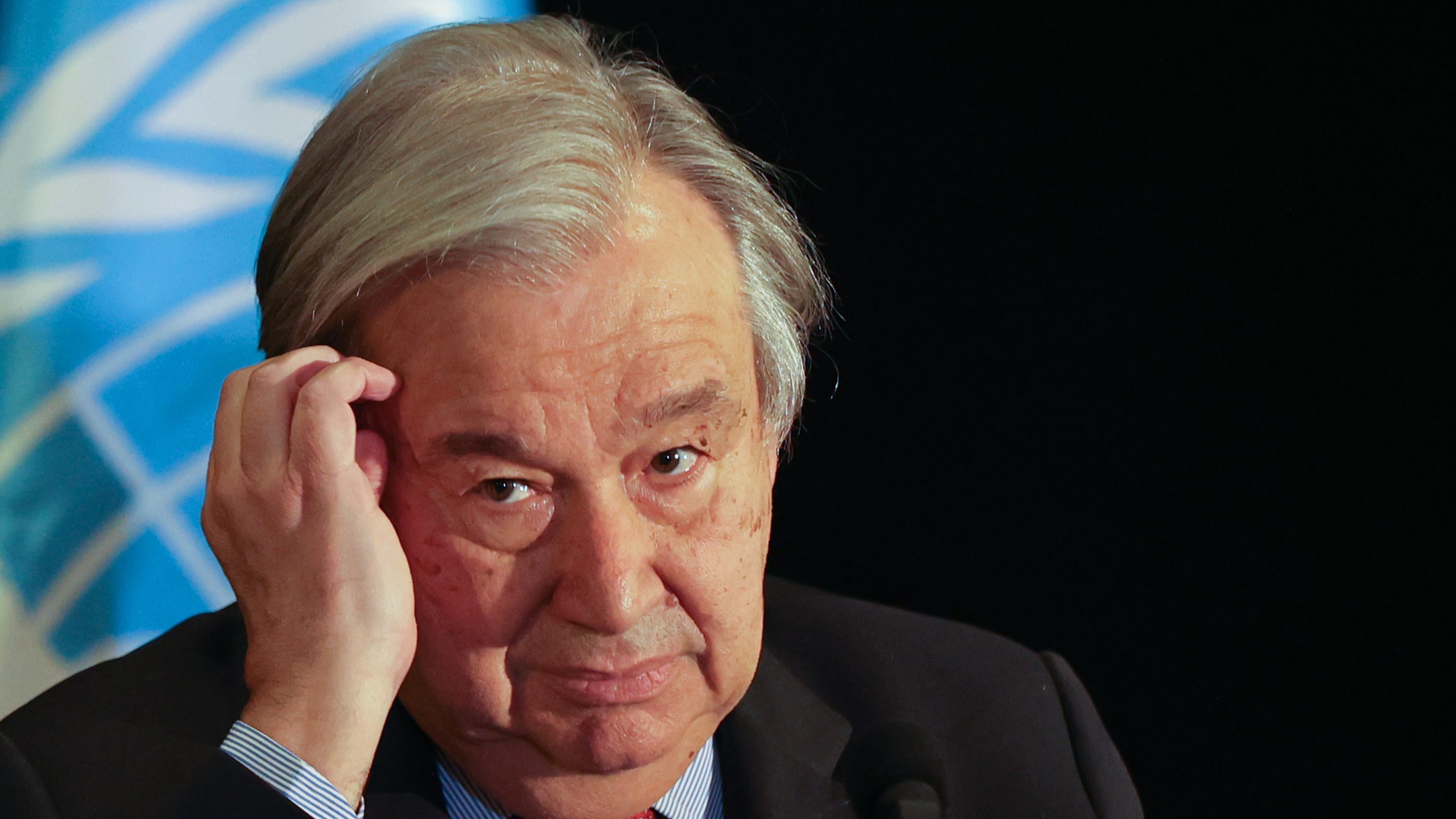Syria Criticizes Guterres Report for Ignoring Unilateral U.S. Sanctions
Damascus has called the report by Guterres "subjective" and "unrealistic", according to al-Watan.
On Monday, Syria criticized UN Secretary-General Antonio Guterres’ report on the humanitarian situation in Syria because it ignored the disastrous effects of unilateral and illegal sanctions imposed on Syria by the United States and the European Union, which have caused suffering for the Syrian people. Syria considered the report’s conclusion on the necessity of cross-border action as “subjective” and unrealistic”. Syria reiterated its position of rejecting the mechanism of cross-border action as a flagrant violation of Syrian sovereignty, independence, unity, and territorial integrity.
Syria’s permanent representative to the United Nations, Ambassador Bassam Sabbagh, made these arguments in a speech on behalf of Syria during a UN Security Council session. Al-Watan received a copy of the speech, which said that Guterres’ report had ignored the disastrous effects of coercive measures and the illegal sanctions imposed by the United States and the European Union, which had imposed suffering on every Syrian. Sabbagh demanded the immediate and unconditional lifting of these measures.
Any objective assessment of the complexities related to the humanitarian situation in Syria would lead to the same conclusion: the main reason for the humanitarian crisis is the Turkish occupation, with its practices, crimes, and sponsorship of terrorist organizations in northern and northwestern Syria.
Sabbagh explained that Syria had set out for the Security Council, through various letters, a detailed record of the Turkish regime’s practices and its crimes against the Syrian people. Each of these offenses requires urgent and firm deterrence from the Council, which must hold the Turkish regime accountable for its crimes and desperate attempts to frustrate the return of stability in Syria, including its obstruction of humanitarian convoys passing across the frontlines and the implementation of the “six-month plan”.
Sabbagh pointed to the practices of U.S. forces illegally located in northeastern Syria and their continued support for separatist militias. These actions are facilitated by NGOs managing cross-border smuggling with Iraq through the Faysh Khabur crossing, in flagrant violation of Security Council resolutions, as it uses humanitarian aid delivery as a pretext for violating state sovereignty.
Read Also: SDC: U.S. Looks for Mechanism to Ease Caesar Act on Syrians
Syria had continued to make every effort and provide the United Nations (and its related agencies) with the necessary facilities to implement UN Resolution 2585, which faced continued obstruction by the Turkish regime and its terrorist enablers.
Sabbagh explained that Syria, in commitment to enhancing internal access to all parts of the country, agreed to the “six-month plan” and responded positively and at record speed to all requests that it received. Syria allowed the operation of a food and non-food aid convoy provided by the World Food Programme, UNICEF, and the UN Population Fund to enter Sarmada on December 9th. Sabbagh stressed that the Security Council should welcome the Syrian state’s achievements in enhancing access to the northwest across the frontlines. However, it is regrettable that the Secretary-General’s report avoided identifying problems and did not explicitly refer to the responsibility of the Turkish regime and its terrorist organizations for obstructing the mandate’s implementation.
Sabbagh said that the report had noted that humanitarian access to Camp al-Rukban remains elusive, without explaining the reasons for that issue — namely, that U.S. forces in that area are illegally present and sponsoring the so-called “Revolutionary Commandos” (Maghawir al-Thawra) terrorist organization. Sabbagh stressed the need for a complete closure of this notorious camp.
Sabbagh stressed Syria’s position in rejecting the mechanism of cross-border action because it flagrantly violates Syrian sovereignty, independence, unity, and territorial integrity. These serious flaws have overshadowed the mechanism’s work. First and foremost, it has failed to ensure that aid reaches the intended beneficiaries and not terrorist organizations, with Sabbagh pointing out that the Secretary-General’s report had confirmed the existence of risks related to the humanitarian cross-border operation, proving the validity of Syria’s position on the entire mechanism.
Sabbagh reiterated Syria’s commitment to a political solution based on a Syrian-Syrian national dialogue, which is owned and led by Syria’s leadership. The dialogue must fulfill the aspirations of the Syrian people and ensure full commitment to Syria’s sovereignty, independence, unity, and territorial integrity. Sabbagh indicated that Syria looks forward to holding the seventh round of the Constitutional Committee’s talks and commends the positive contribution of the national delegation to the committee’s work. He stressed that interference in the committees by external parties must be prevented, as well as any attempt to obstruct the committee, impose artificial timetables, or rush to quick conclusions.
In response to representatives of member states, Sabbagh said: “Establishing a comprehensive cessation of hostilities in Syria requires the elimination of terrorist organizations, primarily ISIS, Jabhat al-Nusra and their associated entities. It also requires an end to the Turkish and American occupation, which allows for the extension of state authority over Syria’s entire territory and the restoration of security and stability.” Sabbagh pointed out that national reconciliation agreements — such as those recently witnessed in Daraa, Deir-ez-Zor, and other places — constitute an important step in this direction.
This article was translated and edited by The Syrian Observer. The Syrian Observer has not verified the content of this story. Responsibility for the information and views set out in this article lies entirely with the author.

No comments:
Post a Comment